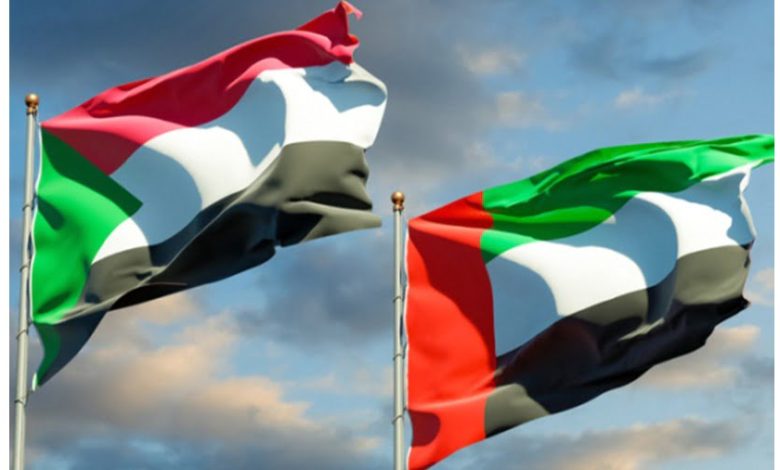Reports
The issue between Sudan and the UAE: It’s Not Just a War

By Hassan Al-Nasser
By 2018, the Abu Dhabi Fund for Development had invested around 7.3 billion dirhams in Sudan, primarily through deposits as part of deals made by the Sudanese government.
In 2013, the National Salvation Government in Sudan experienced a significant decline, already struggling with the loss of 80% of its general budget after the loss of oil due to the secession of South Sudan in 2011. At the same time, the Middle East and the Arab world were living under the shadow of revolutions and unrest, with countries like Syria, Yemen, Libya, and Tunisia facing significant setbacks. In this chaotic context, the UAE emerged as a major financial player, constantly in need of mercenaries.
The UAE and Saudi Arabia capitalized on this need, transferring thousands of Sudanese to the Yemeni front under the banner of “Operation Decisive Storm.” As the National Salvation Government underwent structural changes after 2014, increasingly relying on individuals rather than institutions, the UAE seized the opportunity to recruit fighters from former President Omar al-Bashir. This recruitment provided Mohammed Hamdan Dagalo (Hemedti) and his family access to massive resources, leading to the expansion of the Rapid Support Forces and their integration into the UAE’s military strategy.
Economic Policies
Between 2012 and 2022, the UAE invested around $60 billion in Africa, making it a major economic player on the continent. By 2022, this figure had doubled, with the UAE committing to projects and investments worth $52.8 billion. This made the UAE the leading source of foreign direct investment in Africa, far surpassing China’s contributions. However, in 2023, UAE investments dropped to around $44 billion.
Sudan remained a part of the UAE’s broader African ambitions. By 2018, the Abu Dhabi Fund for Development had invested around 7.3 billion dirhams in Sudan, primarily through deposits as part of deals made by the Sudanese government.
Dubai Ports World, a key Emirati entity, secured its first acquisition of an African port in the early 2000s. By 2022, it had purchased Imperial Logistics in South Africa for around $1 billion, allowing it to expand its influence across the continent. Additionally, the UAE signed a 30-year lease with Tanzania to manage the Port of Dar es Salaam and acquired agricultural lands in Zimbabwe, Sudan, and Angola, with Dubai Investments and E20 holding around 3,800 hectares.
Conflict between the Sudanese Armed Forces and the Rapid Support Forces
In 2022, there was a military confrontation with Ethiopia in the Al-Fashaga region, where the conflict between the Sudanese Armed Forces and the Rapid Support Forces centered around the dynamic commercial and economic relationship, which had a significant impact on this border area.
Meanwhile, the UAE continued its strategy of increasing military influence in the region by providing support and training to the Rapid Support Forces. Mohammed Hamdan Dagalo, known as Hemedti, became a prominent figure in this context, leveraging the alliance with the UAE to strengthen his forces and expand his influence within Sudan.
The Controversial Emirati Role
With the outbreak of war on April 15 between the Sudanese Armed Forces and the Rapid Support Forces, accusations emerged of the UAE’s involvement in the conflict. It was alleged that the UAE provided logistical and military support to the Rapid Support Forces, leading to heightened tensions and widespread violence.
However, the issue between Sudan and the UAE is not just about military conflict but also economic and political competition. The UAE seeks to expand its influence in the region by controlling vital resources and trade routes. This makes Sudan a battleground for a multi-dimensional confrontation, where economic, political, and military factors intertwine.
Dimensions of the Conflict and UAE Interests in Sudan
The UAE’s role in Sudan was not limited to military support for the Rapid Support Forces but extended to economic and political domains. The UAE seeks to secure its economic interests in Sudan, particularly in the agricultural and infrastructure sectors. It has strengthened its presence in these sectors through massive investments, including agriculture, infrastructure, and transportation.
Amid the conflict between the Sudanese Armed Forces and the Rapid Support Forces, the UAE aims to protect its investments and ensure the stability of the region where it has vital economic interests. Hence, the increasing UAE interest in Sudan can be understood as it views the country as a key gateway to expanding its influence in Africa.
The Conflict’s Impact on Sudanese-Emirati Relations
The outbreak of war between the Sudanese Armed Forces and the Rapid Support Forces has significantly impacted relations between Sudan and the UAE. Despite previous cooperation between the UAE and the Rapid Support Forces, the escalating conflict has placed the UAE in a difficult position.
While the UAE wants to maintain strong relations with both sides to achieve its interests, its apparent support for the Rapid Support Forces has affected its relations with the Sudanese government. Nevertheless, the UAE remains keen on securing its influence in Sudan and ensuring the continuity of its investments in the country.
Conclusion
The issue in Sudan is not merely a military war; it is a multi-dimensional conflict where political, economic, and military aspects intersect. The UAE, as a major player in this conflict, seeks to achieve its own interests, whether through military support or economic investments. However, this dual role puts it in a complex position, where it must balance supporting its allies and protecting its interests in a region plagued by conflicts.



